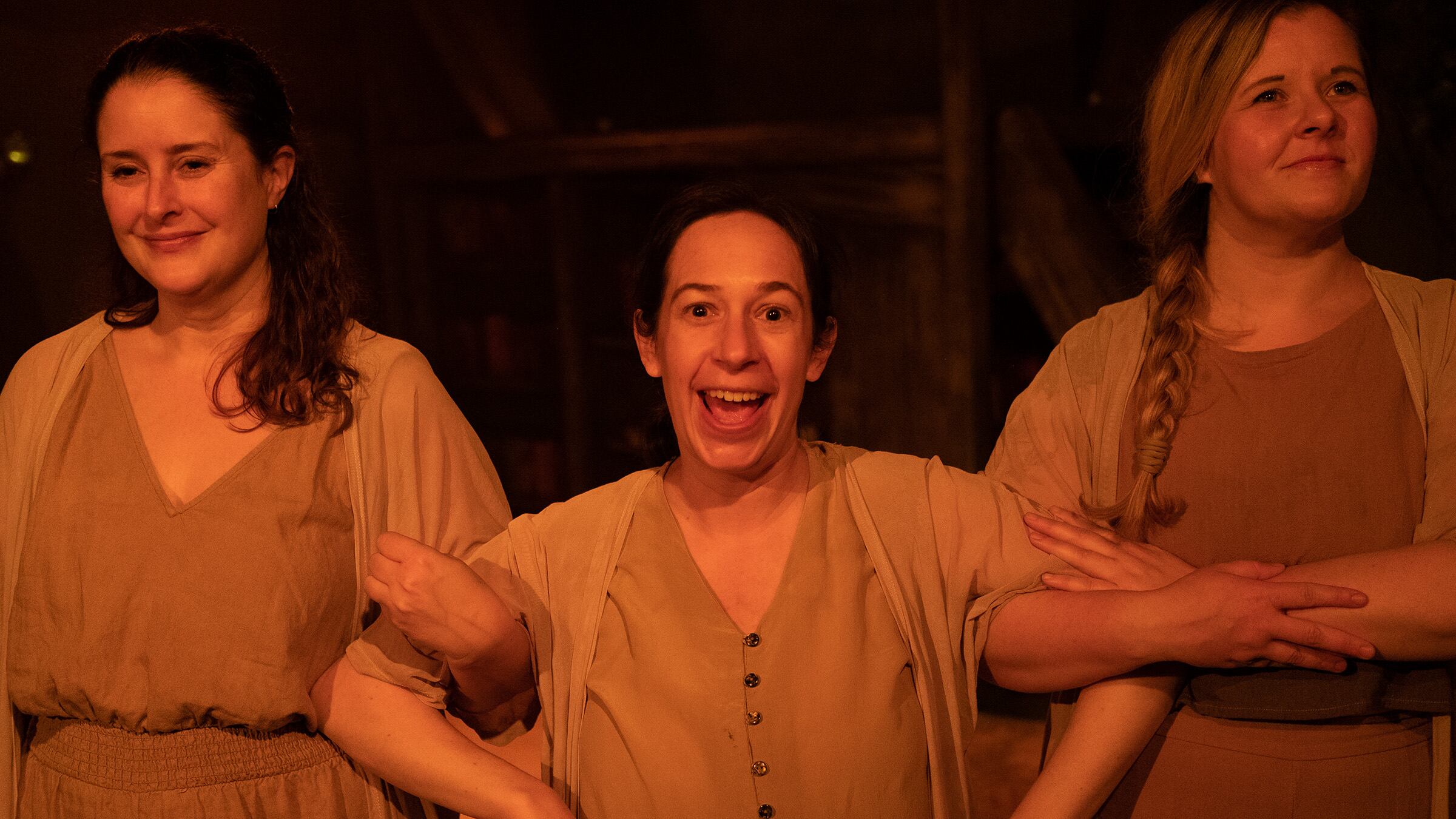In the opening scene of Corrib Theatre’s production of Kissing the Witch, characters opine on the nature of stories and how we perceive them. “When a boy changes his life, it’s called an adventure,” one comments. Another adds, “When a girl does the same, it’s only a fairy tale.”
Those words neatly encapsulate playwright Emma Donoghue’s mission: to create new fables, pulling from the Brothers Grimm and Charles Perrault, while battling the genre’s regressive sexism and overly simplistic morals. The result is an ethereal experience, a dreamlike but familiar new take on a classic ideal.
Adapted from a collection of short stories by Donoghue herself, Kissing the Witch is an anthology of five distinct fables. Each story leads into its successor like a Matryoshka doll, but there are motifs that echo in each telling: the complications of life among royalty, the need to change to survive a dangerous world, and the presence of a clever witch who gives desperate wanderers not what they want, but what they truly need.
There’s a deliberate minimalism to Corrib’s interpretation of Donoghue’s works. The cast consists of only four actresses (Nicole Marie Green, Sara Hennessy, Wynee Hu, and Cynthia Shur Petts), the costuming is simple and plain, and the sets are mostly left to the viewer’s imagination (the light projections by Alan Cline fill in some details with simple line art to create unique backgrounds).
All of these elements combine to create storytelling both approachable and effective. The way the actors jump effortlessly from one character to the next feeds into the story’s themes of adaptability and transformation—a maid can become a princess, a queen can become a beast, and an ordinary girl can become an all-knowing witch. It all feels like a bedtime story, at once thrillingly fantastical and comfortingly familiar.
As for the stories themselves, they wear their influences on their sleeves while playing with genre tropes and conventions. For my money, the best is “The Tale of the Handkerchief,” a sort of take on The Prince and the Pauper that morphs into a low-key psychological drama.
However, I did find myself let down by “The Tale of the Voice,” a contemporary take on The Little Mermaid. It’s not bad by any means, but given that we live in a world three decades removed from the Walt Disney Company’s famous adaptation on the story, the inherent criticisms of the premise are somewhat old hat by now.
Still, that’s a quibble in the grand scheme of things. Kissing the Witch is a wonder to behold—unabashedly feminist, fairly queer, and ultimately a reminder of why stories like this matter and continue to resonate centuries after they were put to page.
SEE IT: Kissing the Witch plays at Milagro Theatre. 525 SE Stark St., 503-389-0579, corribtheatre.org. 7:30 pm Thursday-Saturday, 2 pm Sunday, through June 26. $30.
